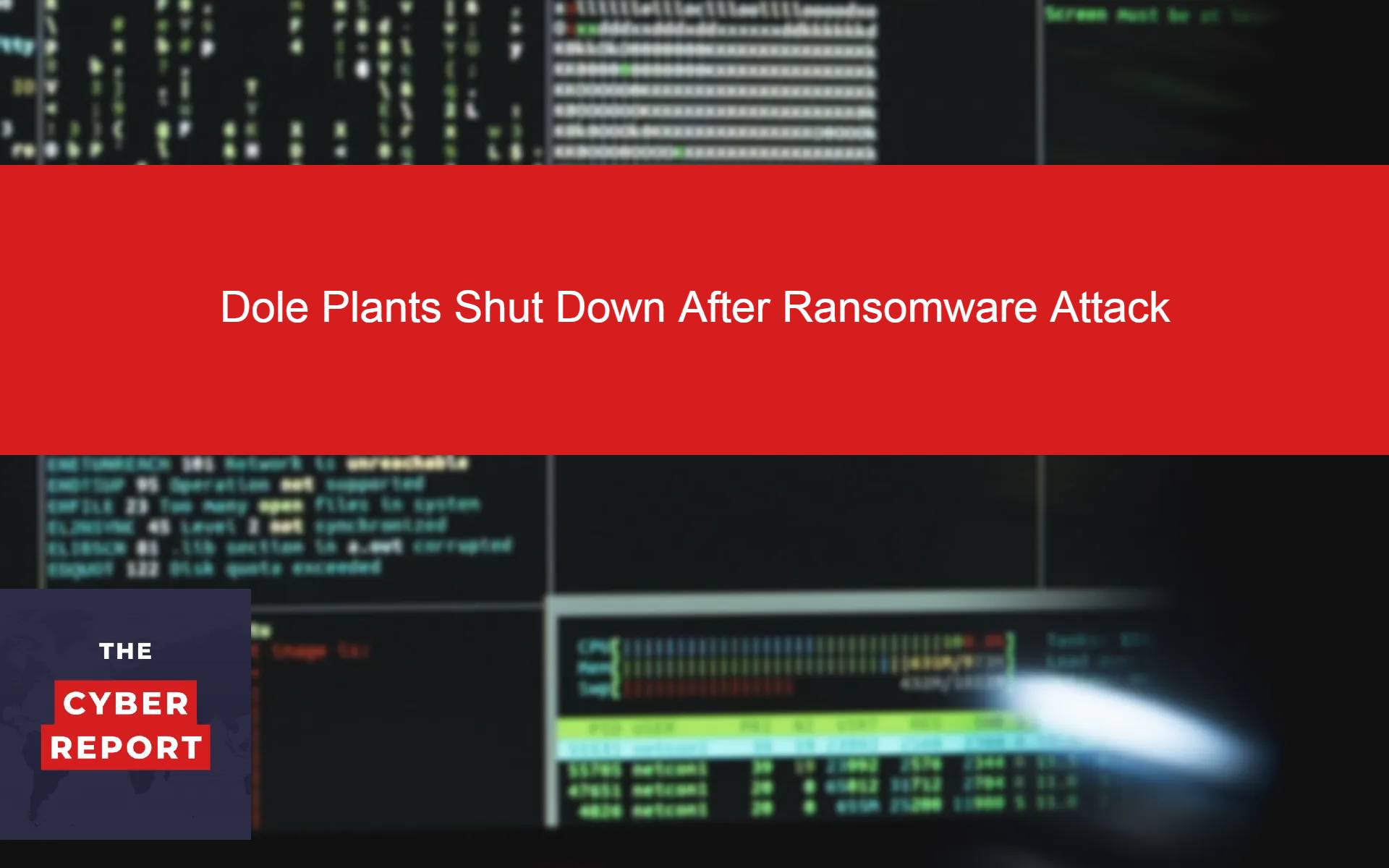On Wednesday, February 22, produce giant Dole announced it had fallen victim to a ransomware attack. The Ireland-based company revealed it had contacted law enforcement and external cybersecurity experts to help it address and investigate the attack.
Dole has reported that the impact on its operations has been limited, however, some stores have experienced product shortages in the wake of the attack. One grocery store in Texas informed customers on Facebook that they were having difficulty obtaining prepackaged salads due to the attack.
The company sent a memo to customers revealing that it had been forced to shut down systems throughout North America to prevent the ransomware from spreading further. Dole has 38,000 employees and 250 processing plants, supplying products to 75 countries.
There doesn’t appear to be any mention of Dole on ransomware's dedicated websites, suggesting that negotiations between the victims and the attackers are still ongoing. It is still unclear if any data has been stolen from Dole systems.
Data from blockchain data company Chainalysis showed that ransomware revenue has plummeted in 2022 as victims are increasingly refusing to pay ransom demands. The US and South Korea recently blamed North Korean ransomware attacks for funding the regime’s malicious cyber activities.
How Ransomware Attacks can Impact your Business
"Ransomware attacks can have a devastating effect on businesses," says Chris Close, a cyber security expert with Cyber Sleuth Security. "It can compromise your data and systems, resulting in significant financial losses, operational disruption, and reputational damage."
When asked about the most common ransomware attack strategies, Close states: "Ransomware attacks typically involve the encryption of data, allowing attackers to demand a ransom in exchange for the decryption of the data. They can also involve the disruption of systems, preventing users from accessing their data until a ransom is paid."
"It's important to develop a comprehensive security strategy to help protect your business from ransomware attacks," Close continues. "This should include a mix of technical measures, such as strong authentication and encryption, as well as training employees on how to spot and respond to suspicious activities."
"Businesses should also consider investing in an insurance policy that covers the costs of any potential ransomware attack," Close adds. "This can help to mitigate the financial losses associated with such an attack."
Source
Ransomware Attack Forces Produce Giant Dole to Shut Down Plants

